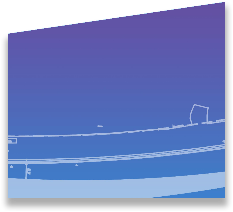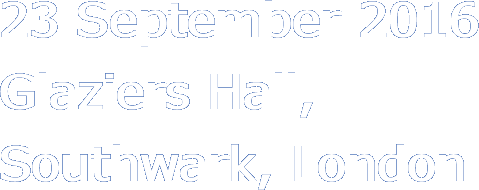WINNER: Walthamstow Village Trial (New Approach to Consultation) - London Borough of Waltham Forest
The successful Mini-Holland bid included a series of proposals aimed at addressing historical traffic management issues whilst improving conditions and provision for people walking and cycling. The first stage of the delivery was a pilot scheme in Walthamstow Village. The aim of this was to show people how their area could feel if non-local traffic was removed and how their day to day lives would be affected.
High Visibility Urban Friendly Safety Truck - JB Riney & Co. Ltd
As a company, Riney felt there was more that could be achieved through vehicle design to reduce the risk of work related road risk. Working with Mercedes- Benz and Thompson Group tipper truck body builders Riney have designed and developed an urban friendly high visibility safety vehicle which is fit for purpose and provides the driver with improved visibility of other road users (particularly cyclists and pedestrians.)
CycleStreets journey planning services - CycleStreets Ltd
CycleStreets runs the UK-wide cycle journey planning website (www.cyclestreets.net) and provides data feeds for a wide variety of journey planning websites and apps, as well as crowdsourced data collection and collision data viewing systems. They aim to help encourage new people to cycling, by giving them information on where it is convenient and safe to cycle, as well as helping existing cyclists find good routes that improve on their existing journeys or help them through unfamiliar areas.
Bike Citizens - Cycling Circle - BikeCityGuide Apps GmbH
The goal of Bike Citizens is to inspire more people all over the world to use their bikes on a daily basis. Bike Citizen’s Cycling Circle describes how the company innovates to raise the total number of cyclists. Bike Citizens provides orientation and safety through their app and their cycle route planner. By collecting and visualizing the anonymously recorded routes of app users Bike Citizens can understand the overall cycling behaviour in cities and therewith facilitate decision-taking in urban traffic planning.
Santander Cycles Mobile App - Transport for London - Cycle Hire
The purpose of the Santander Cycles App was to give direct access to the Cycle Hire Scheme though a customer’s smartphone where they can access their account and hire a bike. Three principal strategic business objectives for Cycle Hire were:
-
Increasing the number of trips completed on the scheme,
-
Increasing customer satisfaction,
-
Reducing the operational subsidy for the scheme.
The app meets these objectives in the following ways: Increasing usage of the scheme by activating a new payment channel and reducing the time it takes to pay for and hire a bike, Improving direct engagement with customers, providing real-time personalised information, adding to the sponsorship proposition and increasing the value and activation possibilities of the offering.
COMMENDED: National Propensity to Cycle Tool - Centre for Diet and Activity Research, MRC Epidemiology Unit
The National Propensity to Cycle Tool (NPCT) is being developed as part of a DfT funded study. It will provide an evidence based approach to support planners deciding where to prioritise cycling spend. The NPCT is open source and implemented in the statistical programme language R. In Stage 1 of the project, in just 6 months, an advanced prototype based on four cities has been developed (Coventry, Leeds, Manchester, and Norwich). In Stage 2 of the project will develop a full national model.
The Hackney Parklet scheme, reclaiming the road – Cyclehoop
Cyclehoop Parklets are a modular, low-maintenance and eco-friendly design turning car parking bays into spaces for public leisure helping to reclaim the road for pedestrians and cyclists. These new pocket park spaces will give the streets a cost-effective makeover and improve the environment for local residents. The parklet is made of small lightweight components that are built in southeast London and assembled on site therefore reducing costs.
Orca – new Cycle Lane Separator - Rediweld Traffic Products
For over 20 years Rediweld has been developing traffic products made from recycled materials. Light segregation is just one way of improving safety for cyclists and reducing accidents. It requires physical objects intermittently placed along the inside of a cycle lane marking, to give a higher degree of separation. The principle being that the cyclists are protected within a cycle lane but not trapped. This has been achieved with a concave face on the cycle lane side, to guide the cyclist back into the cycle lane and so reduce the risk of injury.
|















